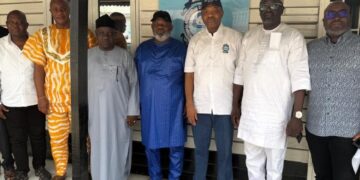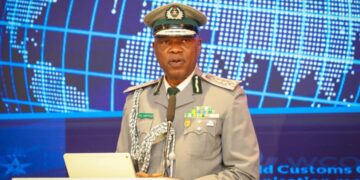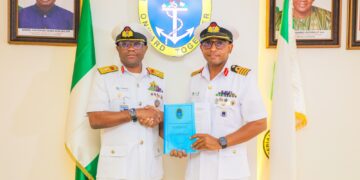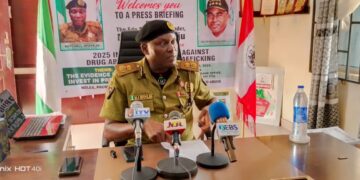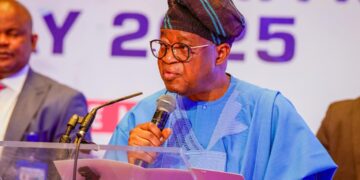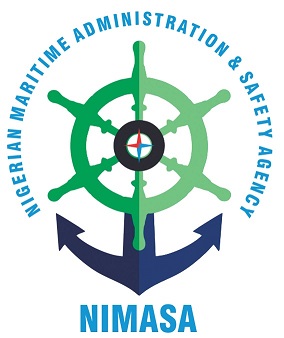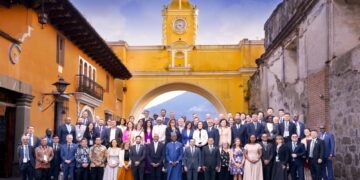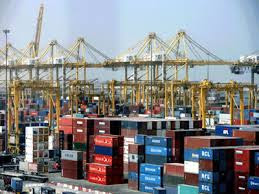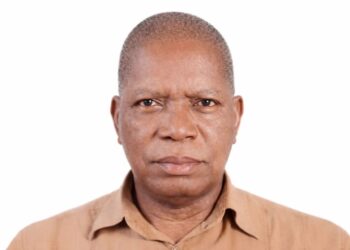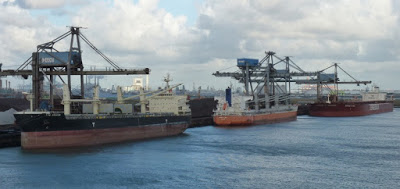 |
| File Photo |
The Federal Government has
declared having armed private security gaurds onboard vessels in Nigeria as
illegal, even though they are meant for the protection of crew and vessels.
declared having armed private security gaurds onboard vessels in Nigeria as
illegal, even though they are meant for the protection of crew and vessels.
The Minister of Justice and Attorney-General of the Federation,
Abubakar Malami, who made this known at the just-concluded 3rd edition of Lagos International
Maritime Week in Lagos, called on maritime stakeholders to develop a strategy
to deal with the challenges within the permissible scope of security agencies
to improve maritime security.
Abubakar Malami, who made this known at the just-concluded 3rd edition of Lagos International
Maritime Week in Lagos, called on maritime stakeholders to develop a strategy
to deal with the challenges within the permissible scope of security agencies
to improve maritime security.
Malami, in a presentation entitled: “Armed Guards Aboard Merchant
Vessels in Nigeria – Legal or Illegal,” said maritime security has become an
important requirement for merchants’ vessels over the last decade. This, he
said, is due to the increasing threats from pirates across the world, adding
that the issue of maritime security in the Nigerian territorial waters should
be taken seriously.
Vessels in Nigeria – Legal or Illegal,” said maritime security has become an
important requirement for merchants’ vessels over the last decade. This, he
said, is due to the increasing threats from pirates across the world, adding
that the issue of maritime security in the Nigerian territorial waters should
be taken seriously.
The Minister, who was represented
by the Special Assistant to the President on Financial Crimes, Abiodun Aikomo,
said: “Even though Nigerian-flagged vessels cannot make use of armed private
guards as the law stands today. The reality is that there must be a dynamic
strategy of dealing with security challenges facing merchant vessels in
Nigerian waters.”
by the Special Assistant to the President on Financial Crimes, Abiodun Aikomo,
said: “Even though Nigerian-flagged vessels cannot make use of armed private
guards as the law stands today. The reality is that there must be a dynamic
strategy of dealing with security challenges facing merchant vessels in
Nigerian waters.”
He added that: “Human beings have the responsible for
self-preservation of their life and limbs and by extension, private properties
and investments.
self-preservation of their life and limbs and by extension, private properties
and investments.
“As to the legality and illegality of armed guards on merchant
vessels in Nigeria, the debate should no longer be focused on whether armed
guards should be employed. Rather, how they can effectively, legally and safely
be engaged with emphasis on accreditation and accountability.
vessels in Nigeria, the debate should no longer be focused on whether armed
guards should be employed. Rather, how they can effectively, legally and safely
be engaged with emphasis on accreditation and accountability.
“In this regard, the United Kingdom, and Norway have provided
regulations on the use of private guards onboard. The International Chamber of
Shipping (ICS), has also announced its change of stance on armed guards.”
regulations on the use of private guards onboard. The International Chamber of
Shipping (ICS), has also announced its change of stance on armed guards.”
According to him, it could be necessary to amend the relevant laws
in the long term, adding that there was a need for stakeholders to develop a
strategy within the scope of power of the Nigerian Maritime Administration and
Safety Agency (NIMASA), in collaboration with other sister agencies.
in the long term, adding that there was a need for stakeholders to develop a
strategy within the scope of power of the Nigerian Maritime Administration and
Safety Agency (NIMASA), in collaboration with other sister agencies.
The Lagos State Commissioner for Transportation, Ladi Lawanson,
sued for massive financing in the sector, especially in the face of emerging
innovations and advances in technology.
sued for massive financing in the sector, especially in the face of emerging
innovations and advances in technology.
Lawanson, who was represented by his Technical Assistant, Mrs
Olufadeke Immanuel, said shortage of maritime infrastructure in Nigeria has
largely reduced the nation’s ability to harness the full potential inherent in
the industry.
Olufadeke Immanuel, said shortage of maritime infrastructure in Nigeria has
largely reduced the nation’s ability to harness the full potential inherent in
the industry.
“In order to leverage the inherent wealth of the maritime sector,
it behoves on us as government and people, to commit our resources towards the
development of requisite supporting infrastructure for the sector.
it behoves on us as government and people, to commit our resources towards the
development of requisite supporting infrastructure for the sector.
The Consul-General of France, Laurent Polonceaux, noted that
Nigeria was surrounded by French-speaking neighbours as well as being the
largest trading partner of France in West Africa.
Nigeria was surrounded by French-speaking neighbours as well as being the
largest trading partner of France in West Africa.
Polonceaux said the business interest of both countries pervaded all segments
of economy value chain ranging from oil and gas, food and nutrition,
pharmaceuticals, security, transportation, to logistics and Africa food
production.
of economy value chain ranging from oil and gas, food and nutrition,
pharmaceuticals, security, transportation, to logistics and Africa food
production.
The Founder, Lagos International Maritime Week, Mrs Oritsematosan
Edodo-Emore, said this year’s conference, themed “Developing Maritime
Infrastructure in Africa,” argued that Africa’s development should define the
vision for the industry by seeking international cooperation to actualise it.
Edodo-Emore, said this year’s conference, themed “Developing Maritime
Infrastructure in Africa,” argued that Africa’s development should define the
vision for the industry by seeking international cooperation to actualise it.
According to her, Nigeria should take advantage of the global
shortage of skilled maritime manpower by developing maritime education and
training institutions, to produce skilled manpower for continental and global
markets.
shortage of skilled maritime manpower by developing maritime education and
training institutions, to produce skilled manpower for continental and global
markets.
The Guardian.



